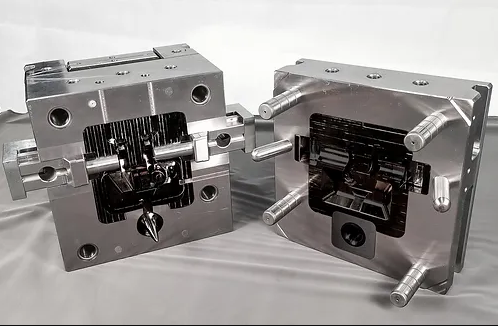Aluminum alloy die casting is a manufacturing process that involves the production of metal parts using aluminum alloys. This process is commonly used in the production of small to medium-sized parts that require high precision and accuracy.
The process of aluminum alloy die casting involves the use of a mold, which is made of two steel plates. The mold is designed to have a cavity in the shape of the desired part, and molten aluminum is poured into the cavity. Once the aluminum has cooled and solidified, the mold is opened, and the part is removed.
One of the benefits of using aluminum alloy die casting is that it allows for the production of complex parts with high accuracy and consistency. The process also allows for the production of parts with thin walls and intricate shapes that would be difficult to produce using other manufacturing processes.
Aluminum alloy die casting is commonly used in the production of parts for the automotive, aerospace, and electronics industries. Parts that are commonly produced using this process include engine blocks, transmission housings, and electronic enclosures.
One of the key advantages of using aluminum alloys for die casting is that they are lightweight and have high strength-to-weight ratios. This makes them ideal for use in applications where weight is a critical factor, such as in the aerospace industry.
There are several types of aluminum alloys that are commonly used in die casting. These include aluminum-silicon alloys, aluminum-copper alloys, and aluminum-zinc alloys. Each of these alloys has its own unique properties and advantages, and the choice of alloy will depend on the specific application and requirements of the part being produced.

In addition to the choice of alloy, there are several other factors that must be considered when designing a part for aluminum alloy die casting. These include the design of the mold, the gating system used to introduce the molten aluminum into the mold, and the cooling system used to control the solidification of the aluminum.
Overall, aluminum alloy die casting is a highly versatile and effective manufacturing process that offers many benefits over other manufacturing processes. By choosing the right alloy and carefully designing the part and mold, it is possible to produce high-quality parts with exceptional precision and accuracy.
-

- أجزاء ومكونات المغنيسيوم Thixomolding اللوحة الوسطى للهاتف المحمول
-

- سبائك المغنيسيوم thixomolding يموت الصب أجزاء الطائرات بدون طيار
-

- إطار الدراجة الجبلية Magensium
-

- سبائك المغنيسيوم thixomolding يموت الصب أجزاء الطائرات بدون طيار
-

- Magnesium alloy rigid fork for bicycle -customized die casting metal parts
-

- غطاء الكمبيوتر المحمول أجزاء ثيكسومولدينج المغنيسيوم ب

 0086-750-5616188
0086-750-5616188 +86 13392089688
+86 13392089688 sales@zhongmei-tech.com
sales@zhongmei-tech.com







